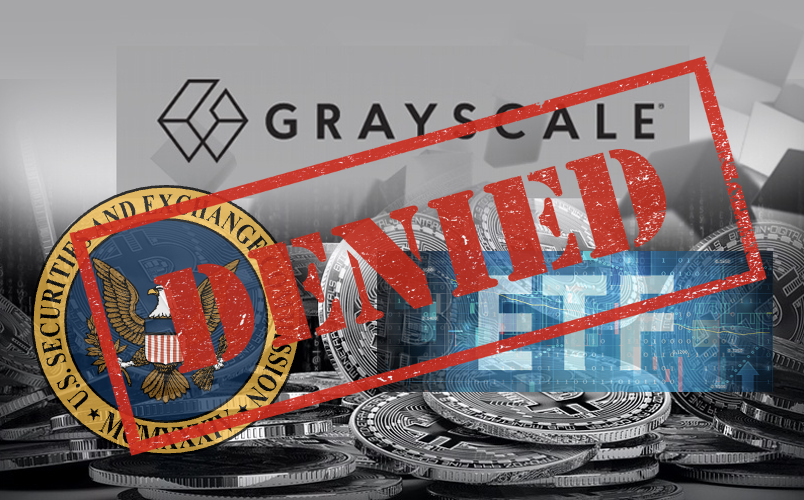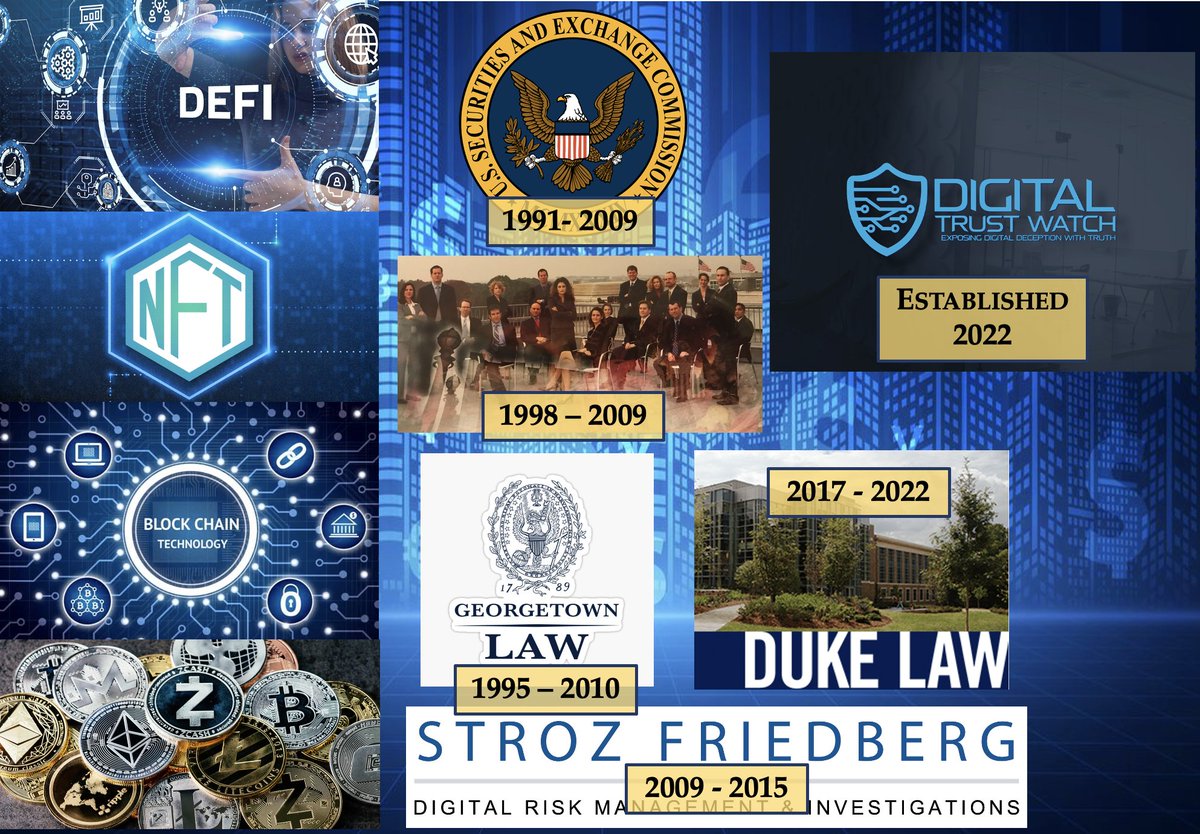
The SEC denied @Grayscale's application for a bitcoin ETF, refusing to allow the Emperor to sell his new clothes in a trunk show. I worked at the SEC for 18 yrs, the last 11 as Chief of the SEC Office of Internet Enforcement. Here’s my take on why the SEC’s denial was spot-on.🧵 

The 86-page SEC order presents an exhaustive explanation of why a bitcoin ETF would not meet SEC requirements that the rules of a national securities exchange be “designed to prevent fraudulent and manipulative acts and practices and to protect investors and the public interest.”
The crux of the SEC's position is that bitcoin's price is subject to manipulation on unregulated platforms, and approval of a bitcoin ETF would only invite further manipulation. The SEC offered numerous examples of crypto-related conduct that triggered their concerns, including:
1) Wash trading, matched trades, spoofing and other manipulative trading schemes on unregulated crypto exchanges, which could fraudulently inflate or deflate the price and volume of bitcoin; coingeek.com/cftc-targets-g…
2) Persons with a dominant position in bitcoin, who could manipulate bitcoin pricing and move markets in their favor without detection or culpability; jumpstartmag.com/what-are-whale…
3) Malevolent actors, who, given the lack of enforced or mandated cybersecurity standards for crypto-trading platforms, could hack into customer accounts or gain malicious control of bitcoin-related networks; bloomberg.com/news/articles/…
4) Crypto platform insiders, who could trade based on material, nonpublic information or could disseminate false and misleading information to orchestrate schemes to create bogus new sources of demand for bitcoin; coindesk.com/policy/2022/06…
5) Bitcoin-based investment vehicles, which, when responding to a “fork” in the bitcoin blockchain, could wreak havoc by creating two different, non-interchangeable types of bitcoin; or cnbctv18.com/cryptocurrency…
6) Stablecoins like @Tether_to or platforms like @binance, both of which are wholly unregulated and operate in secret, who could facilitate destructive and nefarious manipulative and fraudulent activity. sec.gov/rules/sro/nyse…
With traditional SEC-registered financial firms, the SEC has absolute and instantaneous visibility into every aspect of operations. But in a bitcoin ETF, the SEC lacks that sort of oversight and access -- and has scant ability to detect, investigate and deter fraudulent conduct.
As a result, the bitcoin marketplace (like all Web3 marketplaces) operates in a regulatory vacuum amid a den of thieves, without adult supervision. johnreedstark.com/wp-content/upl…
The bitcoin marketplace lacks the hallmarks of a traditional transparent surveillance program, so the SEC can't analyze or verify market trading and clearing activity, customer identities and other critical data for risk and fraud.
The bitcoin marketplace lacks licensure of individuals involved in bitcoin's trading, operation, promotion, etc., so the SEC can't detect individual misconduct and enforce violations.
The bitcoin marketplace allows for no "routine" or "for cause" SEC or FINRA examinations, inspections and audits, so the SEC and FINRA can't patrol, supervise or verify critical customer protections and compliance mechanisms.
The bitcoin marketplace lacks traditional accountability structures and fiduciaries, so the SEC can't ensure that every customer’s interest is protected and held sacrosanct.
The bitcoin marketplace lacks compliance systems, personnel and infrastructure, so the SEC can't know where bitcoin came from or who holds most of it.
Despite an extraordinarily compelling SEC order, Grayscale nonetheless immediately filed a lawsuit asking the DC Circuit Court to overturn the SEC’s decision. docdroid.net/73OjnW4/dc-cir…
But the SEC behaved reasonably, thoughtfully and consistent with its critical mission of investor protection. Indeed, the SEC went to great lengths to meticulously explain its rationale and position. sec.gov/rules/sro/nyse…
The argument that the SEC acted “arbitrarily and capriciously” (the standard for reversal under the Administrative Procedure Act) will fail and the sole winner in the Grayscale lawsuit will be Grayscale's legal team who will no doubt rake in millions in fees (in fiat, of course).
Meanwhile, bitcoin has suffered its worst quarter since 2011 and things are only getting worse. Three Arrows Capital has gone into liquidation but is far from alone. The mammoth crypto-carnage grows exponentially by the day, and the dominos keep falling. wsj.com/articles/crypt…
Think about it, this is quite a disturbing phenomenon. Amid a horrific crashing crypto market and a crypto-ecosystem in shambles, Grayscale has the audacity to want more investors to have easier access to bitcoin via an ETF, so more investors can experience financial ruin.
It seems to matter little to Grayscale and the rest of Big Crypto that Rome is burning. All of Big Crypto still wants investors to pay fiat for bitcoin despite a crypto-winter that seems more akin to a crypto-ice age. barrons.com/articles/bitco…
My take is that Grayscale and Big Crypto desperately need a fiat infusion into the crypto marketplace. And they decided that a bitcoin ETF was the most efficient way to quickly facilitate a massive and sudden influx of real cash. It's recklessly exploitive and it's appalling.
In sum, it's 2022 and in order to keep production flowing of its secret high-tech Soylent Green-like Ponzi scheme, Grayscale has spent tens of millions lobbying for a bitcoin ETF. But besides crypto-mom @HesterPeirce, the SEC will not abide. Kudos @SECGov.
• • •
Missing some Tweet in this thread? You can try to
force a refresh




